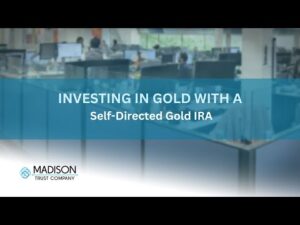
Introduction
Economist Peter Schiff recently shared his insights on the possibility of a Federal Reserve interest rate cut in March. He believes that Federal Reserve Chairman Jerome Powell's decision to remove the March rate cut from consideration may have actually increased the likelihood of a rate cut. Schiff also highlighted the role of the Fed in creating inflation and then pretending to combat it, emphasizing its impact on government budget deficits and financial markets.
Peter Schiff on Fed Rate Cut and Inflation
In a series of posts on social media platform X, economist and gold bug Peter Schiff provided his perspective on the U.S. economy, the Federal Reserve's policy, and the possibility of a March interest rate cut.
Fed's Decision and Powell's Statement
The Federal Reserve recently announced that it would leave interest rates unchanged and Chairman Jerome Powell indicated that the Federal Open Market Committee (FOMC) would not cut rates in March. Powell stated that he did not believe the committee would have enough confidence to make a rate cut decision by the March meeting. Schiff, however, expressed a different view:
Increased Probability of a Rate Cut
Schiff suggests that by removing the possibility of a rate cut in March, Powell may have inadvertently increased the probability of such a cut. As the stock market reacted to Powell's statement, Schiff believes there may be pressure to prop it back up, leading to a rate cut in the near future.
Ignored Factors and Inflation
Schiff also pointed out that Powell overlooked certain factors when discussing inflation. For example, Powell cited slower rent increases as a reason for optimism about decreasing inflation. However, he failed to acknowledge that actual rent was rising faster than owners' equivalent rent, which contradicted his claim that rising inflation was transitory.
Fed's Inflation Policy
Furthermore, Schiff highlighted the Fed's inconsistent approach to inflation. Despite inflation being above 2% for several years, Powell stated that the Fed would not tolerate any year where it falls below 2%. This contradicts the concept of inflation averaging 2% over time.
Concerns and Future Outlook
Schiff expressed concerns about the Fed's decision to stop hiking rates and the potential impact on the economy. He questioned how long it would take for the financial community to realize the severity of the upcoming recession and the increasing inflation problem.
The Fed's Role in Inflation
Schiff concluded by stating that the Fed's true role is to create inflation, deny its existence, attribute it to others, and pretend to combat it. He believes that the Fed uses inflation to facilitate large government budget deficits and support financial markets.
What are your thoughts on Peter Schiff's views? Let us know in the comments section below.
Frequently Asked Questions
How does a gold IRA account work?
Gold Ira accounts are tax-free investment vehicles for people who want to invest in precious metals.
Physical gold bullion coin can be purchased at any time. You don't have to wait until retirement to start investing in gold.
The beauty of owning gold as an IRA is you can hold on to it forever. Your gold assets will not be subjected tax upon your death.
Your heirs inherit your gold without paying capital gains taxes. Because your gold doesn't belong to the estate, it's not necessary to include it on your final estate plan.
You'll first have to set up an individual retirement account (IRA) to open a gold IRA. After you have done this, an IRA custodian will be assigned to you. This company acts in the role of a middleman between your IRS agent and you.
Your gold IRA custodian can handle all paperwork and submit necessary forms to IRS. This includes filing annual reports.
Once you've set up your gold IRA, it's possible to buy gold bullion. Minimum deposit is $1,000 A higher interest rate will be offered if you invest more.
You'll have to pay taxes if you take your gold out of your IRA. If you're withdrawing the entire balance, you'll owe income taxes plus a 10 percent penalty.
However, if you only take out a small percentage, you may not have to pay taxes. However, there are some exceptions. There are some exceptions. For instance, if you take out 30% or more from your total IRA assets, federal income taxes will apply plus a 20 percent penalty.
It's best not to take out more 50% of your total IRA investments each year. If you do, you could face severe financial consequences.
How much should precious metals make up your portfolio?
Before we can answer this question, it is important to understand what precious metals actually are. Precious metals have elements with an extremely high worth relative to other commodity. This makes them extremely valuable for trading and investing. Today, gold is the most commonly traded precious metal.
There are many other precious metals, such as silver and platinum. While gold's price fluctuates during economic turmoil, it tends to remain relatively stable. It is also relatively unaffected both by inflation and deflation.
All precious metals prices tend to rise with the overall market. However, the prices of precious metals do not always move in sync with one another. The price of gold tends to rise when the economy is not doing well, but the prices of the other precious metals tends downwards. Investors expect lower interest rate, making bonds less appealing investments.
Contrary to this, when the economy performs well, the opposite happens. Investors choose safe assets such Treasury Bonds over precious metals. Since these are scarce, they become more expensive and decrease in value.
To maximize your profits when investing in precious metals, diversify across different precious metals. Additionally, since the prices of precious metals tend to rise and fall together, it's best to invest in several different types of precious metals rather than just focusing on one type.
Is physical gold allowed in an IRA.
Gold is money, not just paper currency or coinage. It is an asset that people have used over thousands of years as money, and a way to protect wealth from inflation and economic uncertainties. Investors today use gold to diversify their portfolios because gold is more resilient to financial turmoil.
Many Americans today prefer to invest in precious metals, such as silver and gold, over stocks and bonds. Even though owning gold is not a guarantee of making money, there are many reasons why you might want to add gold to your retirement savings portfolio.
Gold has historically performed better during financial panics than other assets. The S&P 500 declined 21 percent during the same period. Gold prices increased nearly 100 per cent between August 2011 – early 2013. Gold was one asset that outperformed stocks in turbulent market conditions.
Another benefit to investing in gold? It has virtually zero counterparty exposure. Your shares will still be yours even if your stock portfolio drops. But if you own gold, its value will increase even if the company you invested in defaults on its debt.
Finally, gold provides liquidity. This means that, unlike most other investments, you can sell your gold anytime without worrying about finding another buyer. It makes sense to buy small quantities of gold, as it is more liquid than other investments. This allows you to profit from short-term fluctuations on the gold market.
What is the best precious-metal to invest?
This question depends on how risky you are willing to take, and what return you want. While gold is considered a safe investment option, it can also be a risky choice. If you are looking for quick profits, gold might not be the right investment. You should invest in silver if you have the patience and time.
If you don’t want to be rich fast, gold might be the right choice. Silver might be a better investment option if steady returns are desired over a long period of time.
How much should I contribute to my Roth IRA account?
Roth IRAs are retirement accounts that allow you to withdraw your money tax-free. You can't withdraw money from these accounts before you reach the age of 59 1/2. There are some rules that you need to keep in mind if you want to withdraw funds from these accounts before you reach 59 1/2. First, you cannot touch your principal (the original amount deposited). This means that regardless of how much you contribute to an account, you cannot take out any more than you initially contributed. If you wish to withdraw more than you originally contributed, you will have to pay taxes.
The second rule is that you cannot withdraw your earnings without paying income taxes. So, when you withdraw, you'll pay taxes on those earnings. Let's suppose that you contribute $5,000 annually to your Roth IRA. In addition, let's assume you earn $10,000 per year after contributing. On the earnings, you would be responsible for $3,500 federal income taxes. You would have $6,500 less. You can only take out what you originally contributed.
The $4,000 you take out of your earnings would be subject to taxes. You'd still owe $1,500 in taxes. You would also lose half of your earnings because they are subject to another 50% tax (half off 40%). So, even though you ended up with $7,000 in your Roth IRA, you only got back $4,000.
Two types of Roth IRAs are available: Roth and traditional. Traditional IRAs allow for pre-tax deductions from your taxable earnings. To withdraw your retirement contribution balance plus interest, your traditional IRA is available to you. You can withdraw as much as you want from a traditional IRA.
A Roth IRA doesn't allow you to deduct your contributions. But once you've retired, you can withdraw the entire contribution amount plus any accrued interest. There is no minimum withdrawal requirement, unlike traditional IRAs. You don't have to wait until you turn 70 1/2 years old before withdrawing your contribution.
Can the government steal your gold?
Your gold is yours and the government cannot take it. You worked hard to earn it. It belongs entirely to you. This rule may not apply to all cases. If you are convicted of fraud against the federal government, your gold can be forfeit. Additionally, your precious metals may be forfeited if you owe the IRS taxes. You can keep your gold even if your taxes are not paid.
What does gold do as an investment?
Gold's price fluctuates depending on the supply and demand. Interest rates can also affect the gold price.
Due to their limited supply, gold prices fluctuate. In addition, there is a risk associated with owning physical gold because you have to store it somewhere.
Statistics
- The price of gold jumped 131 percent from late 2007 to September 2011, when it hit a high of $1,921 an ounce, according to the World Gold Council. (aarp.org)
- Gold is considered a collectible, and profits from a sale are taxed at a maximum rate of 28 percent. (aarp.org)
- If you accidentally make an improper transaction, the IRS will disallow it and count it as a withdrawal, so you would owe income tax on the item's value and, if you are younger than 59 ½, an additional 10% early withdrawal penalty. (forbes.com)
- You can only purchase gold bars at least 99.5% purity. (forbes.com)
- Indeed, several financial advisers interviewed for this article suggest you invest 5 to 15 percent of your portfolio in gold, just in case. (aarp.org)
External Links
law.cornell.edu
- 7 U.S. Code SS7 – Designation boards of trade as contract market authorities
- 26 U.S. Code SS 408 – Individual retirement plans
irs.gov
investopedia.com
finance.yahoo.com
How To
3 Ways To Invest in Gold For Retirement
It's crucial to understand where gold fits in your retirement strategy. You have many options for investing in gold if there is a 401K account at your workplace. You might also be interested to invest in gold outside the workplace. One example is opening a custodial accounts at Fidelity Investments if an IRA (Individual Retirement Account), if you already own one. You might also consider purchasing precious metals directly from a trusted dealer if they are not already yours.
These are three simple rules to help you make an investment in gold.
- Buy Gold with Your Money – You don't need credit cards, or to borrow money to finance your investments. Instead, invest in cash. This will help protect you against inflation and keep your purchasing power high.
- Physical Gold Coins – Physical gold coins are better than a paper certificate. Physical gold coins can be sold much faster than paper certificates. Physical gold coins don't require storage fees.
- Diversify your Portfolio – Don't put all your eggs in one basket. Also, diversify your wealth and invest in different assets. This reduces risk and allows you to be more flexible during market volatility.
—————————————————————————————————————————————————————————————-
By: Kevin Helms
Title: Economist Peter Schiff Discusses Likelihood of a Fed Interest Rate Cut in March
Sourced From: news.bitcoin.com/economist-peter-schiff-discusses-likelihood-of-a-fed-interest-rate-cut-in-march/
Published Date: Fri, 02 Feb 2024 02:30:59 +0000
Related posts:
 Peter Schiff Warns of Inflationary Depression and Recession
Peter Schiff Warns of Inflationary Depression and Recession
 Economist Peter Schiff: US Dollar Near ‘Historic Crash’ — ‘Forget Soft Landing, It’s Crash and Burn’
Economist Peter Schiff: US Dollar Near ‘Historic Crash’ — ‘Forget Soft Landing, It’s Crash and Burn’
 Peter Schiff Says All Spot Bitcoin ETFs Are Now in Bear Markets — Warns of Deeper Losses
Peter Schiff Says All Spot Bitcoin ETFs Are Now in Bear Markets — Warns of Deeper Losses
 The Bitcoin Debate: A Controversial View from Peter Schiff
The Bitcoin Debate: A Controversial View from Peter Schiff












